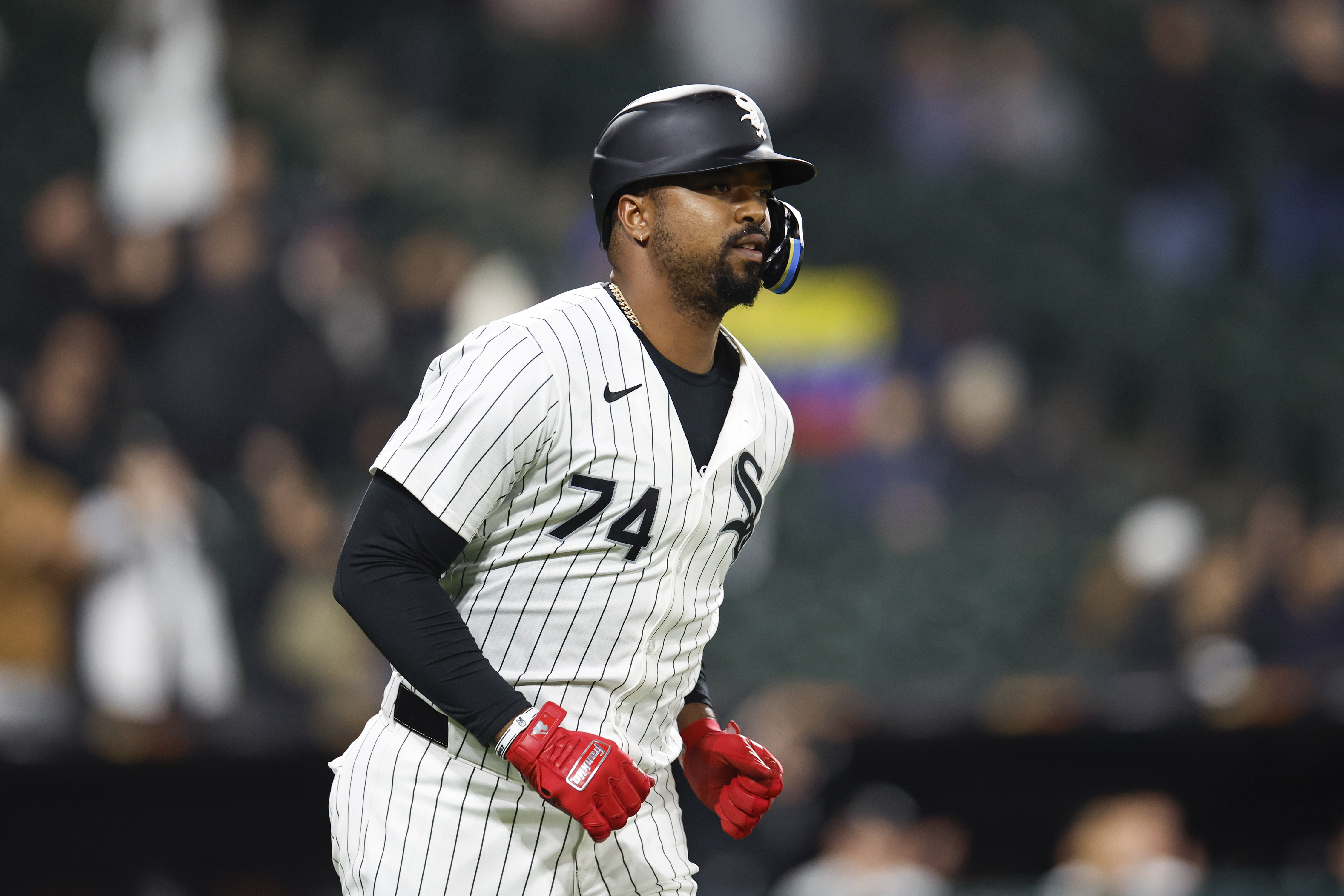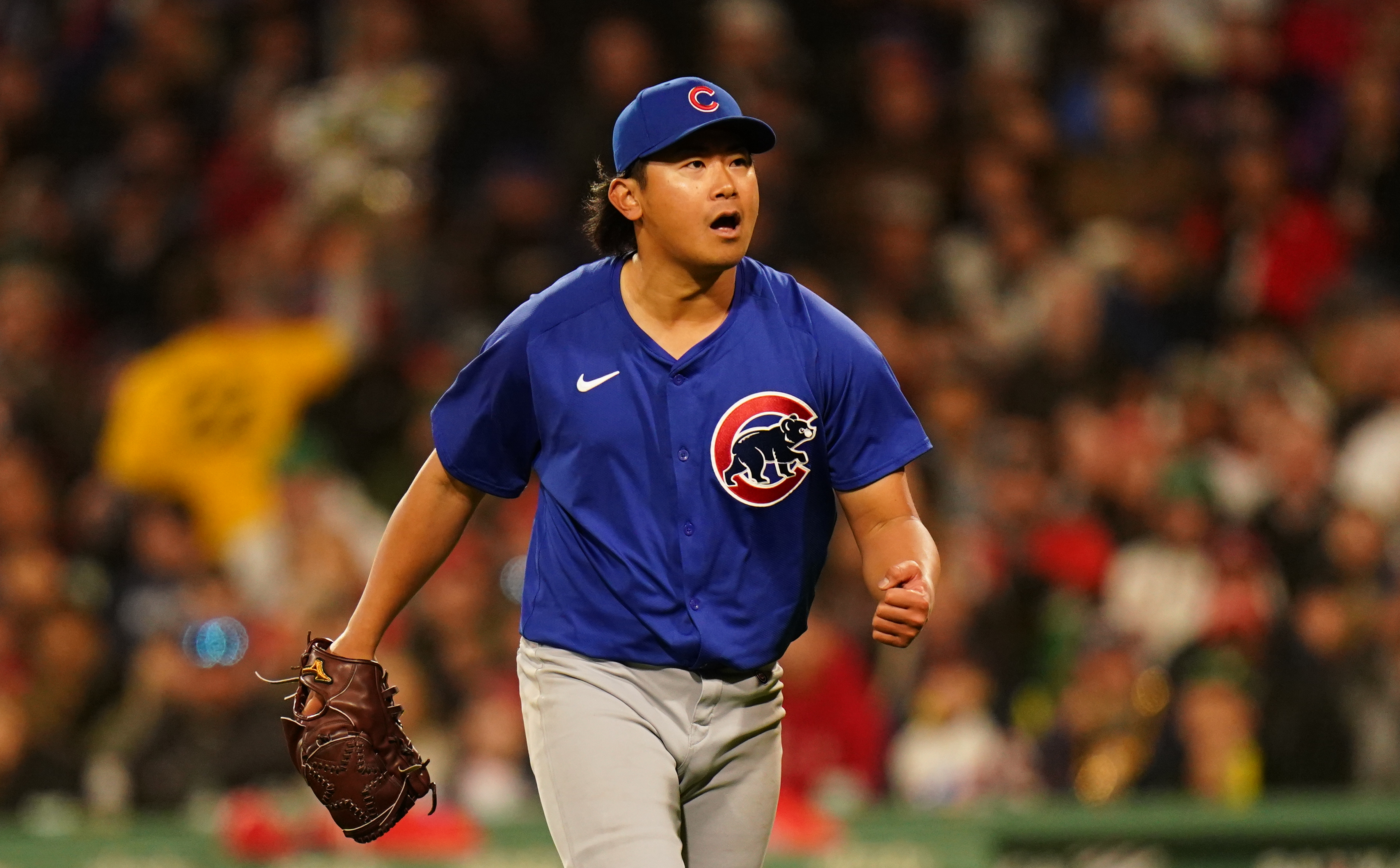A young fan was taken to the hospital after getting struck by a foul ball during Wednesday night's game between the Chicago Cubs and Houston Astros.
Cubs outfielder Albert Almora Jr. hit a line drive in the fourth inning into the field-level stands down the third base line, where it hit the girl. He immediately put his hands on his head and took a couple of steps toward the seats. He then fell to his knees near home plate and was consoled by teammate Jason Heyward and manager Joe Maddon.
"Albert is an emotional young man with children, so that made it even more real to him," Maddon said. "I understood exactly what he was going through right there."
It took several minutes for Almora, who appeared to be crying, to compose himself and continue the at-bat. Players from both teams appeared shaken up by the scene.
Almora still looked to be on the verge of tears after the game. He spoke haltingly as he described what happened and said he knew immediately as he looked into the stands that his ball had hit someone.
"Just the way life is," he said. "As soon as I hit it, the first person I locked eyes on was her."
The girl was picked up by a man who appeared to be with her and he dashed up the stairs not long after she was struck. A photo taken by The Associated Press showed the girl apparently conscious and crying as she was whisked away and nearby fans looked on.
Chicago Baseball
After the game, the Astros issued a statement saying the fan was taken to a hospital, but did not disclose any further details on her condition.
Almora said he received "unofficial updates" on her condition but he was advised not to share any details.
"Right now I'm just praying and I'm speechless," he said. "I'm at loss of words. Being a father, two boys ... but God willing I'll be able to have a relationship with this little girl for the rest of my life. But just prayers right now and that's all I really can control."
Following the fourth inning, Almora, who still appeared upset, approached a security guard in the stands near where the girl was sitting and spoke to the guard before the two embraced.
"It's good he let it out," Heyward said of that moment. "I'm glad he did. That's hard to deal with."
Maddon said he was prepared to pull Almora from the game, but after his emotional moment with the security guard the center fielder said he was OK to keep playing.
"I just want him to understand that this is not under your control," Maddon said. "There is nothing that you could have done about that differently, so please don't blame yourself. Of course, it's an awful moment, but this is a game and it's out of your control, and you have to understand it."
Like all major league stadiums, Minute Maid Park has netting to protect fans near the field from foul balls. On the third base side in Houston, it extends to the end of the visiting team's dugout. The girl was sitting in what looked to be the third or fourth row about 10 feet past where the netting ends.
Almora was asked if he thinks the netting should be expanded.
"Right now obviously I want to put a net around the whole stadium," he said.
Following recommendations from Major League Baseball, by the start of the 2018 season all 30 teams had expanded their protective netting to at least the far ends of the dugouts after several fans were injured by foul balls in 2017.
At Yankee Stadium in May 2017, a boy was struck on the head by a portion of Chris Carter's broken bat. A fan sitting beyond the first base dugout was hit by a 105 mph foul ball off the bat of Aaron Judge in July of that year. And in September, a young girl was injured by another 105 mph foul ball off the bat of Todd Frazier and was hospitalized.
Heyward thinks the netting should be expanded even more.
"Just safety," he said. "Well-being of people, because people don't realize how hard it is to react to a baseball. We go through that. I know they don't get it. But it's that hard to react to it. So it would help people. But we know we can't control it. Stadiums know they can't necessarily control how fast the game is. But if there's anything they can do, I guess that would be it. I'm not the stadium police, but I don't know any other way to stop that from happening."



